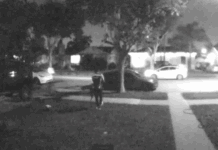When 33-year-old Justine Carter decided to hop on the treadmill one day in May, she had no idea that it would lead to a terrifying, life-threatening ordeal. A mother from Utah, Justine was fit, active, and had no known health concerns. But 12 minutes into what was supposed to be a routine walk, her body began sending alarming signals—shortness of breath, a sharp pain radiating from her back to her chest, and then sudden, violent vomiting.
At first, Justine thought she might be dealing with a stomach bug. But what happened next would prove much more dangerous. She vaguely remembers calling her husband and mother-in-law, but after that, the rest is a blur.
Her husband found her unconscious in the bathroom, seemingly seizing, with dangerously slow breathing. Thankfully, Justine’s mother-in-law, Teresa Carter, who is a nurse, immediately began performing CPR—keeping Justine alive until emergency services arrived.
For an astonishing 25 minutes, Justine’s heart didn’t beat. During that time, CPR was the only thing keeping blood circulating to her organs. At the hospital, doctors confirmed that Justine had experienced a spontaneous coronary artery dissection (SCAD)—a rare but deadly condition where a tear forms in the wall of a coronary artery, leading to heart attacks or even sudden death. SCAD is most often found in otherwise healthy women in their 40s and 50s, and it typically has no clear cause. Justine, at 33, had no prior warning signs and no major risk factors.
The situation was dire. Justine had a heart attack that nearly killed her, and after a week in the hospital, she faced yet another cardiac event. This second heart attack was equally frightening, as it revealed that the initial tear in her coronary artery had grown, creating another blockage.
Fortunately, the medical team was able to stabilize her heart using a combination of advanced techniques, including a small heart pump to take the pressure off her damaged heart. Today, after a miraculous recovery, Justine is back home, taking walks and slowly regaining her strength. Although she hasn’t returned to her more strenuous activities like running or hiking, her prognosis is promising.
Reflecting on the ordeal, Justine shares valuable lessons she’s learned. One major takeaway is the importance of listening to your body. Before her heart attack, she felt unusually tired, but shrugged it off as a side effect of the cloudy weather. Now, she understands the importance of taking even minor symptoms seriously. “As women, we tend to put everyone else’s needs above our own,” she explains. “We have to say, ‘This is how I’m feeling, and this is what I’m going to do about it.’”
Another critical lesson is the value of knowing life-saving techniques. CPR played a pivotal role in Justine’s survival, and both she and her mother-in-law emphasize that everyone should learn this vital skill. “Even for non-medical people, it’s such a valuable skill to have,” Teresa Carter added. You never know when you might need it to save a life.
Finally, Justine refuses to let fear rule her life, despite her near-death experience. “You can live your life scared of a lot of things, but if you spend every day in fear, you won’t enjoy life,” she said, determined to live fully and embrace life’s fragility.
Thanks to the swift actions of her family, first responders, and the dedicated medical team at HCA Healthcare’s Mountain View Hospital, Justine survived an ordeal that few people do. Her story is a testament to the power of modern medicine, the importance of CPR, and the resilience of the human spirit.




